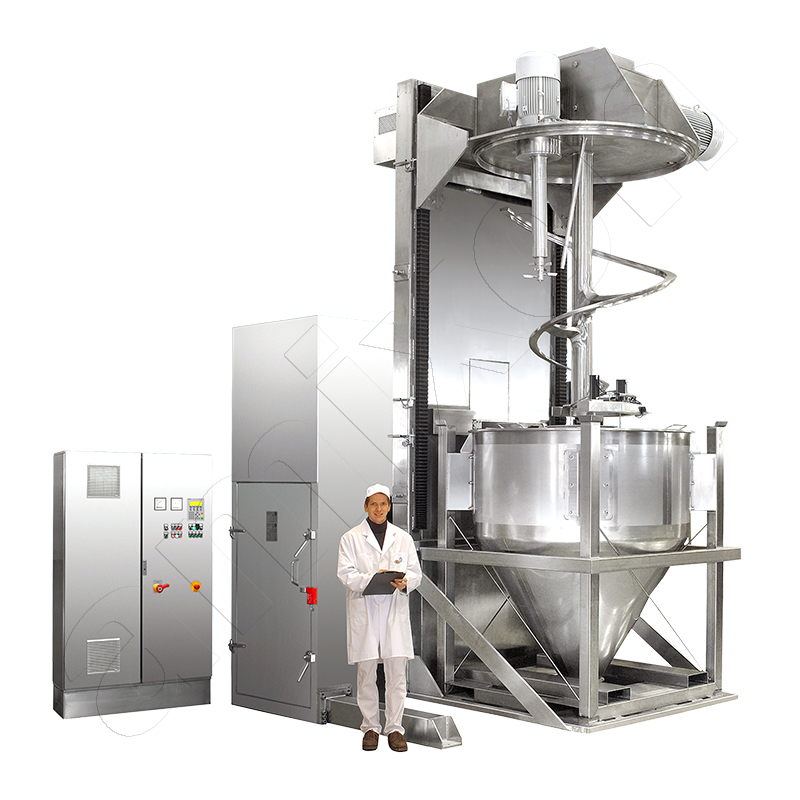
Bins
A bin / packaging unit is a logistical unit for holding, storing and transporting raw materials, semi-finished or finished goods. The aim is to transport products safely, efficiently and in a manner that is easy to handle. Bins are ubiquitous in industry, both for solid and liquid substances.
Opposite, you can see an IBC bulk container from amixon®, which also serves as a mixing vessel.
Liquid products are usually filled into bottles, barrels, canisters, pallet containers or flexible packaging (such as Tetra Paks).
Bulk goods, on the other hand, are handled in sacks, big bags, bulk containers, barrels, silos, sachets, cans, folding boxes or paper sticks. In industry, the abbreviation IBC (Intermediate Bulk Container) is widely used for large bulk containers.
Container types differ according to various criteria, including stability, protective function (e.g. vapour barrier), hygiene level, suitability for hazardous substances, reusability and type of disposal. Some containers are recyclable, while others must be treated as waste.
In process engineering, operators of powder and bulk material factories are faced with the question of how products can be filled into containers safely and efficiently. Several aspects are crucial here:
- the speed of filling,
- the accuracy of weighing,
- dust-proof and hygienic working methods,
- labelling and, if necessary, the
- use of protective gas atmospheres.
- If the substances used are hazardous to health, additional protective measures such as isolators may be necessary.
Similar requirements also apply when opening and emptying the containers in the process. Safe handling, complete emptying and hygienic integration into the production process are crucial for quality and occupational safety.
